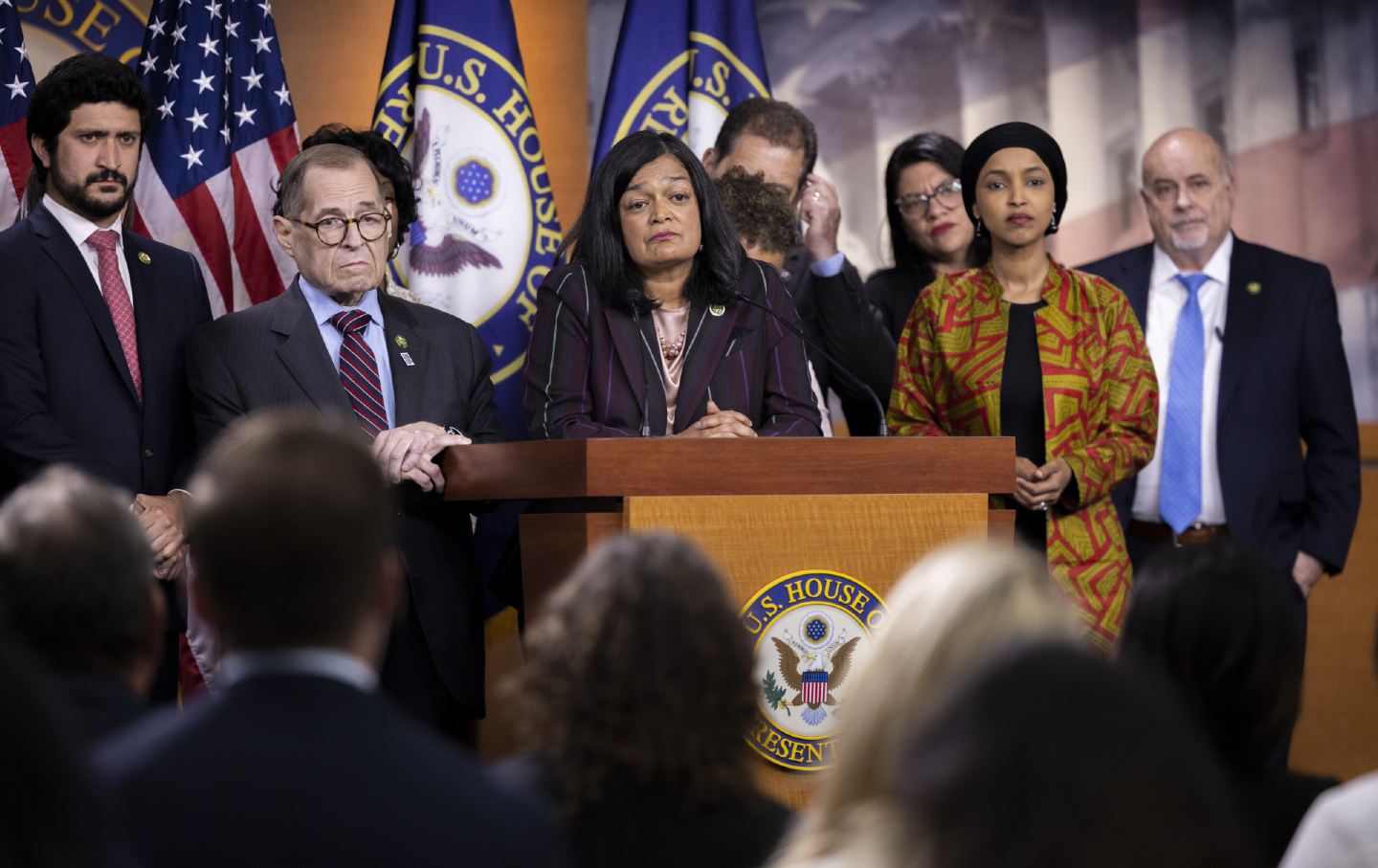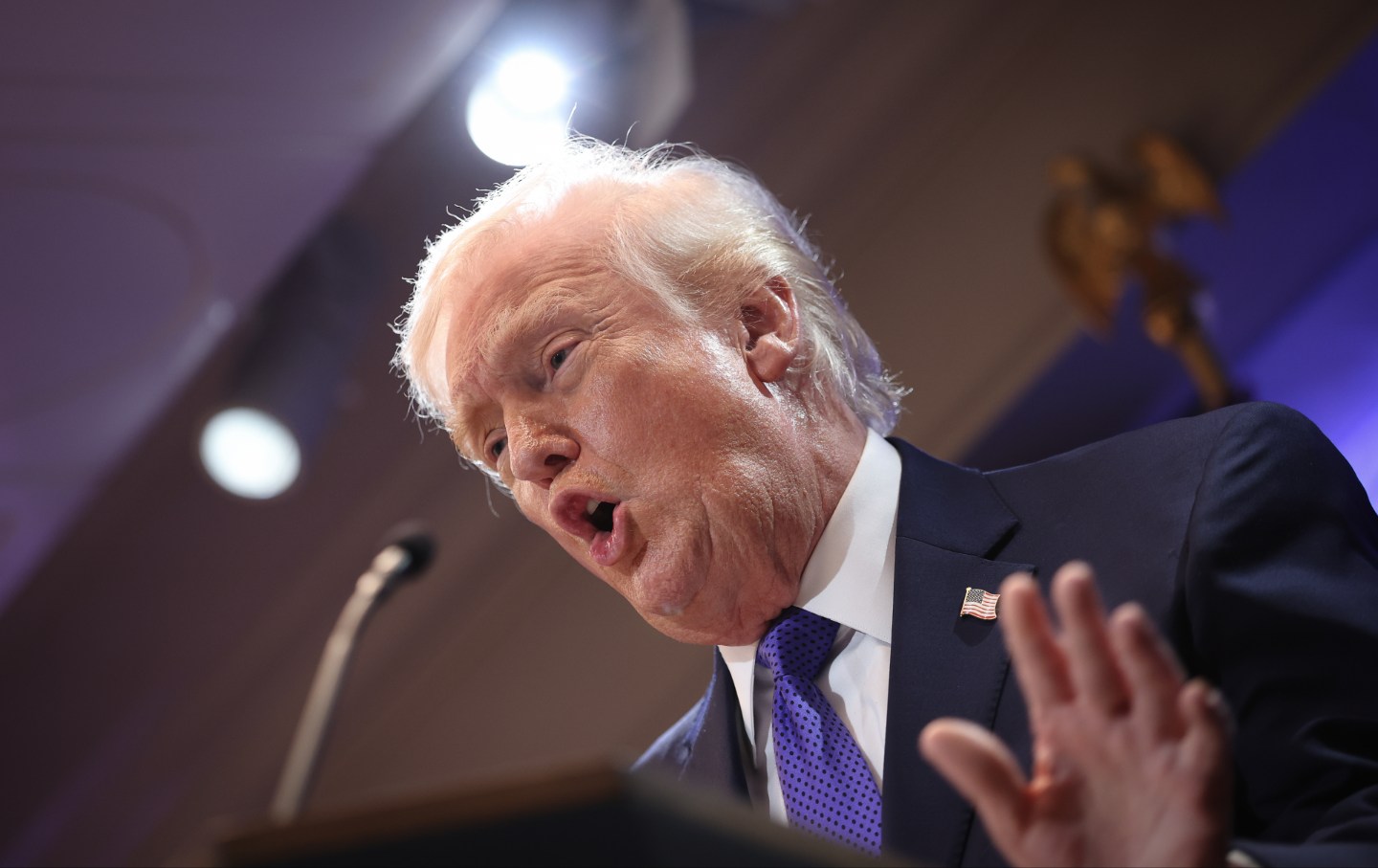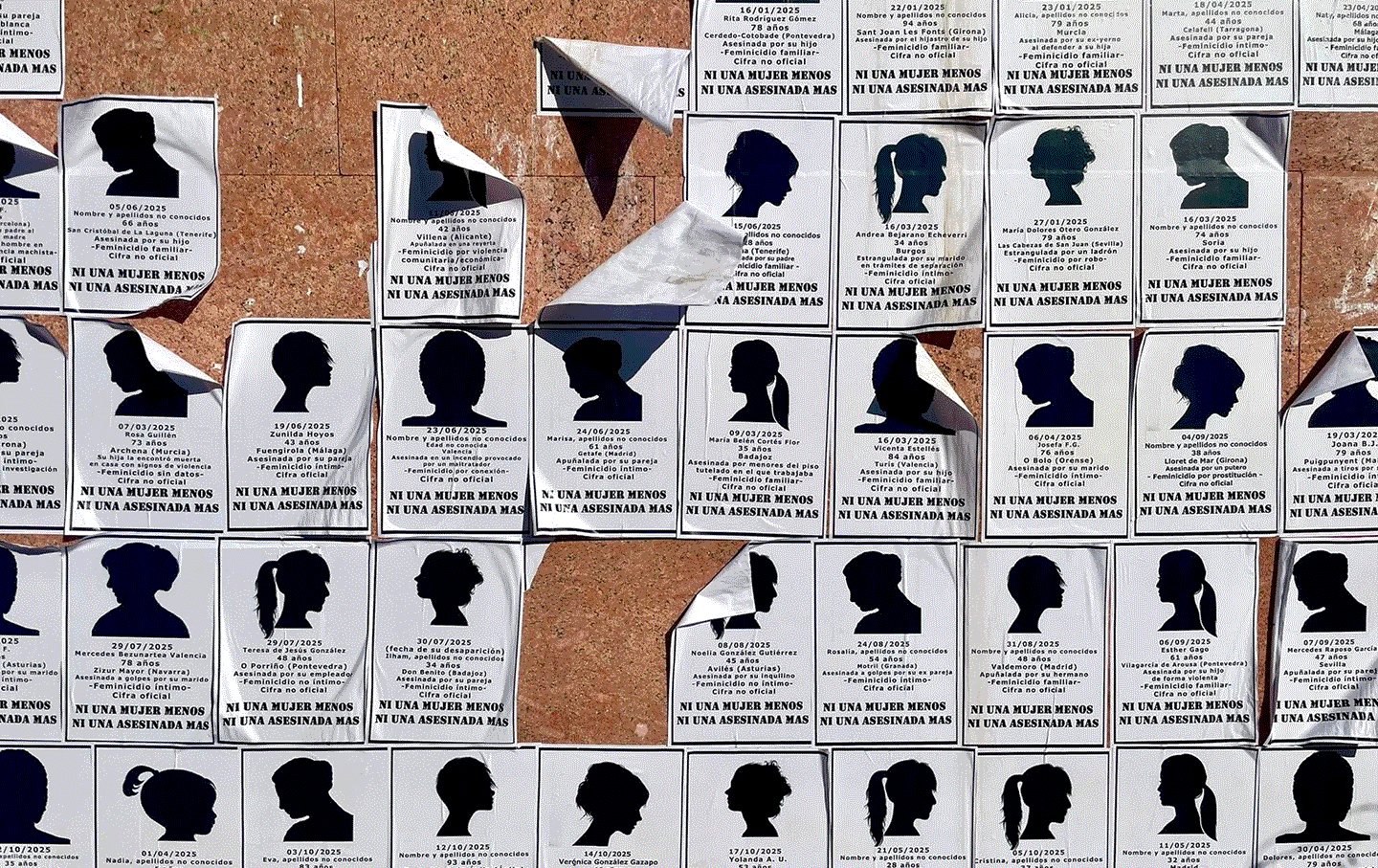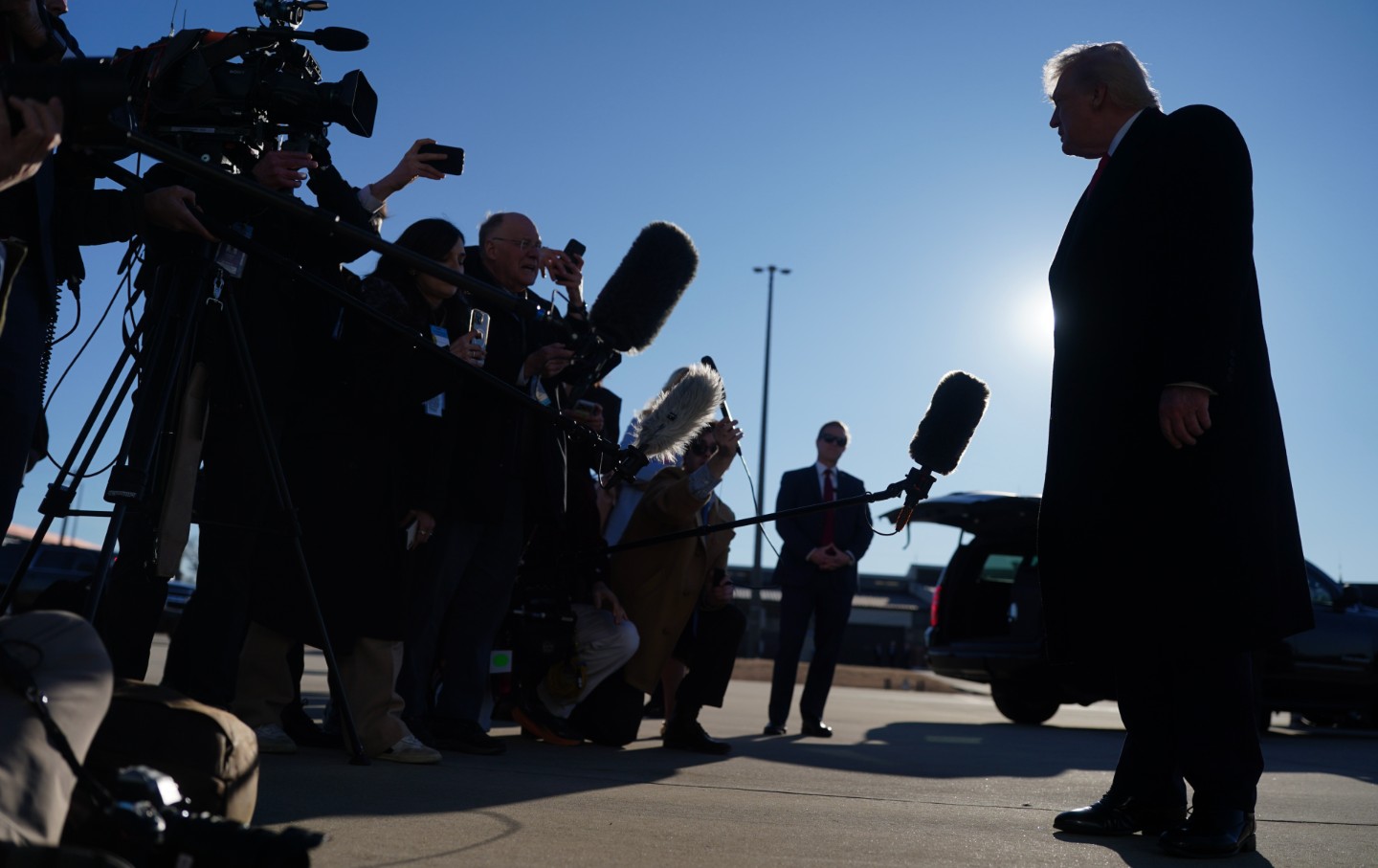Despairing? Here’s a Bold, Populist, Popular, and Progressive Domestic Agenda for 2025 and Beyond.
How the Congressional Progressive Caucus is driving the center of the Democratic Party in a new direction.

What are the stakes in the elections of 2024? The mantra for Democrats is already well defined: Democracy is on the ballot; abortion is on the ballot; climate is on the ballot.
All true, but if the Congressional Progressive Caucus, led by Representative Pramila Jayapal, has its way, it will be about far more. The CPC just released its Progressive Proposition Agenda for 2025, detailing a bold, populist, and popular agenda that its members will take across the country.
If the CPC has its way, inequality is on the ballot. Living wages are on the ballot. Affordable healthcare, childcare, housing, education, and retirement are on the ballot. As are clean government, fair taxes and basic justice.
On healthcare, the CPC agenda calls for expanding Medicaid to cover more low-income families, and empowering government not only to negotiate lower prices for all drugs but also to directly manufacture generic drugs like insulin, providing patients with dramatic savings. It also makes dental, vision, and hearing coverage part of Medicare, while lowering the eligibility age.
On housing, the CPC calls for bold efforts to address the housing crisis, including a national housing trust fund, incentives to turn abandoned commercial properties into residential units, and $100 billion in direct assistance for working-class families seeking to purchase their first home.
On education, it calls for universal pre-K and kindergarten, and tuition-free college and vocational training. It demands support for true universal childcare, capping out-of-pocket costs at 7 percent of household income, a vital change at a time when childcare expenses for young families often exceed the cost of rent or a mortgage.
It would raise Social Security benefits paid for by fair taxes on the wealthy. It calls for a $17 minimum wage, indexed to inflation. It promises a 12-week paid family and medical leave policy. It would hike penalties for corporate abuses of workers like wage theft, child labor, and workplace safety violations. It endorses the PRO Act to give workers a fair shot at organizing at the workplace.
The CPC platform also details reforms vital to our nation’s security. It lays out the next steps in addressing the climate crisis. It calls for reforms vital to democracy—including instituting same-day voter registration, ending partisan gerrymandering, and curbing the role of Big Money in our politics. It would eliminate the filibuster in the Senate, ban congressional stock ownership and trading, and strengthen judicial ethics, while boldly demanding expansion of the number of Supreme Court justices.
It also lays out a populist agenda to counter the choke hold of wealth and entrenched interests on our political economy—expanded anti-trust measures, higher taxes on stock buybacks, a minimum tax for the rich, and a crackdown on private equity and hedge fund rapaciousness, particularly in healthcare and housing.
Cynics, of course, will dismiss the agenda as simply election year promises. But it’s worth remembering that the CPC has earned the right to far greater credibility. After the election of 2020, with Bernie Sanders’ insurgent candidacy making the case, Democratic majorities in the House and Senate, and an emboldened 100-member Congressional Progressive Caucus having the moxie to act collectively, the CPC helped drive through the House the boldest domestic reforms since the 1960s. Too much of it—particularly the democracy reforms—was blocked in the Senate by Republican-led filibusters, but the potential for change, and the power of the CPC to set the agenda, was clear.
The CPC Proposition focuses on domestic reforms, omitting any mention of our ruinous foreign policy, from the horror of Gaza to our increasingly unsustainable effort to police the globe.
Yet CPC members—as New York Times editorial board member Mara Gay recently noted—have openly challenged Biden’s policy on Gaza and have driven “the center of the Democratic Party in a new political direction…one sharply critical of the Israeli government, and willing to use American leverage to curb Israel’s military plans.”
The CPC agenda also omits signature progressive domestic reforms, such as Medicare for All or a job guarantee, even though Pramila Jayapal and other CPC members champion both.
This pragmatism reflects the CPC’s moving from being a forum for dissenters to one wielding political power. Under Jayapal, the caucus has been both a voice for visionary change and an effective force for expanding the possible. It has shown skill in knowing when to challenge the limits and when to unite to get things done. In this, the CPC stands in stark contrast to the wing nuts of the Republican Freedom Caucus. As the CPC Agenda notes, major reforms will require ending the antidemocratic filibuster in the Senate. What the CPC can promise is, with a Democratic majority, it will drive this agenda through a House.
Popular
“swipe left below to view more authors”Swipe →In 2024, the stakes are far greater than saving the Republic from Trump and his reactionary agenda. If Democrats take back the House, expand their majority in the Senate and keep the White House, reforms that can make a fundamental difference in the lives of all, especially poor and working people, are possible. In 1944, amid a war abroad, Franklin Roosevelt called for an economic bill of rights as central to the postwar recovery. With the Proposition Agenda, the CPC offers bold steps towards fulfilling that goal. And the CPC’s growing power adds credibility to that promise.
More from The Nation
I’m a Journalist on SNAP. Here’s What I Saw During the Latest Food Crisis I’m a Journalist on SNAP. Here’s What I Saw During the Latest Food Crisis
As for virtually all SNAP recipients, my benefits have never been enough to cover monthly food expenses. Meanwhile, Trump calls any food aid at all “un-American.”

Trump’s Attack on the Supreme Court Was Unhinged Even for Him Trump’s Attack on the Supreme Court Was Unhinged Even for Him
The president went on a wild rant alleging that the justices who struck down his tariffs were part of a vast global conspiracy to destroy him.

Why Trump Is Trying to Steal Jesse Jackson’s Glory Why Trump Is Trying to Steal Jesse Jackson’s Glory
The president wants you to know he had a Black friend, sort of.

Femicides in Spain Femicides in Spain
Femicide deaths in Spain spotlight persistent gender violence. Street posters, Malaga, Spain, 2026.

MAGA’s Reaction to the Epstein Files Reveals Total Moral Collapse MAGA’s Reaction to the Epstein Files Reveals Total Moral Collapse
The right’s moral charade was always going to be undone by the Trump of it all.



